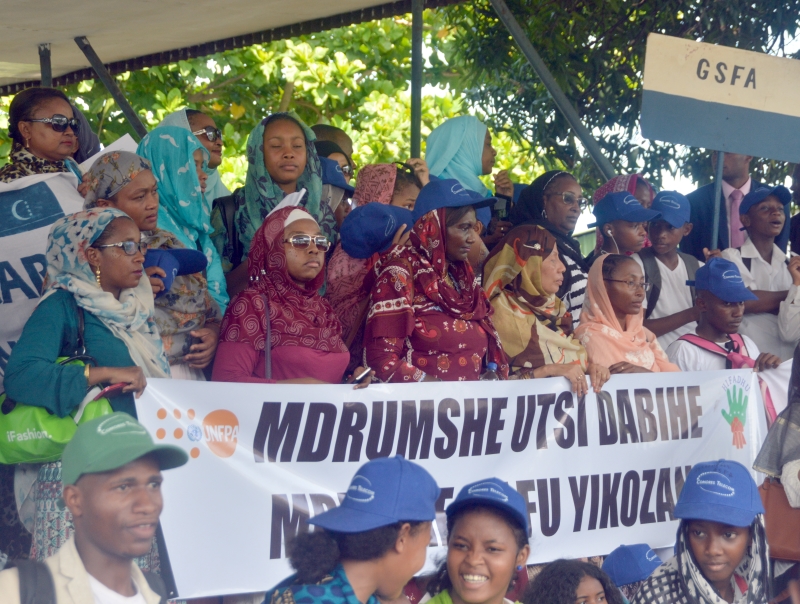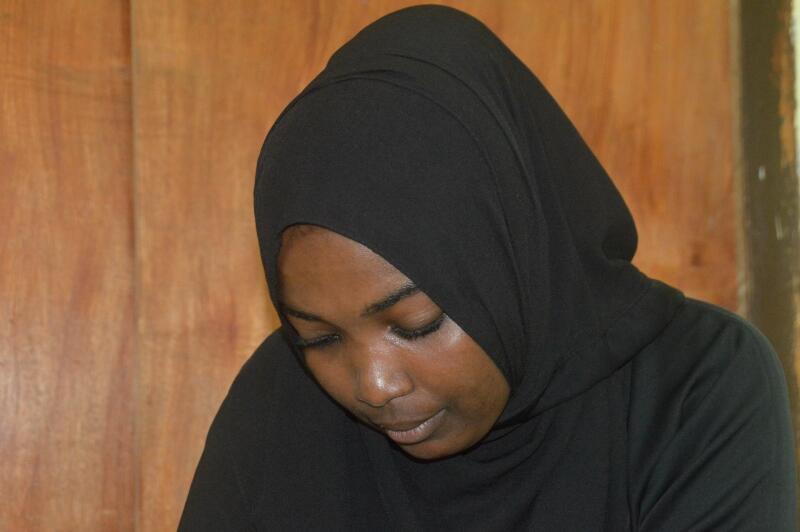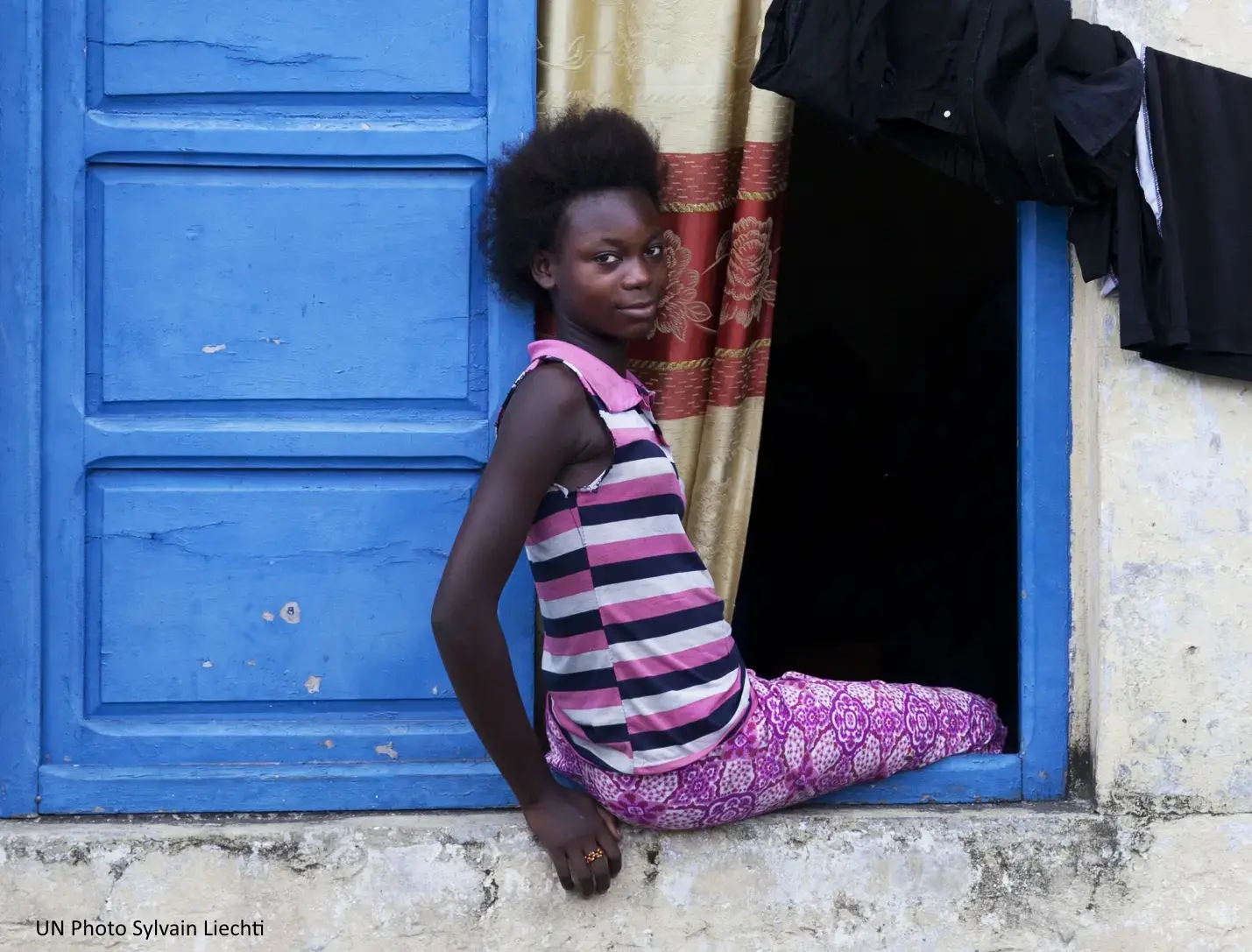MORONI, Comoros – "I was expelled from my uncle's family home because he found out that I was seeing a boy from my village. This situation did not please him,” says Fazlat Said Salim, 21, originally from Koimbani Oichili.
“My mother has been [living] in France for several years and I live with my aunt, her husband and children. My uncle never looked after us but when he heard that [I was seeing a boy], he slapped me and asked my aunt to expel me from the house. He threatened to [beat] me as soon as the opportunity presented itself and said he would pursue me wherever I go,” she says.
I was greeted by the staff [at the national police station], who took my case seriously.
“Since that day, I have been living with a friend in Moroni and continuing my studies at the university. I was afraid to return to my village. However, I lived in fear because he could come to the university to look for me. That is why I asked my friends about seeking help and I was told about the national police station.
“There, I was greeted by the staff, who took my case seriously. My uncle was summoned to explain his [actions],” says Ms. Salim.
Violence against women a widespread problem
In the Comoros, violence against women is a common problem but little is known about the extent of it, because it is suppressed for social and religious reasons.
Almost 17 per cent of women have experienced at least one episode of violence since the age of 15, or experienced physical or sexual violence at some point in their lives, according to the 2012 EDS-MICS survey.
Women may experience beatings, rape, discrimination, exploitation within their family unit, and harassment in the workplace. These forms of violence are often ignored and they rarely result in prosecution of the perpetrators.
Among married Comorian women, the most frequent reasons given for a husband’s act of violence against them include burning food, arguing with their husband, going out without notifying their husband, neglecting their children, and refusing to have sex with their husband.
According to the 2012 EDS-MICS survey, about 11 per cent of women aged 15-49 years had experienced physical abuse, 3 per cent of women had experienced sexual violence, 3 per cent of women had suffered sexual violence and physical abuse, and 17 per cent of women had suffered at least one form of violence (sexual or physical). Women between the ages of 20 and 40 years experienced the most physical or sexual violence.
Violence slightly higher in urban areas
In urban areas, the phenomenon is more widespread. Women residing in urban areas are more exposed to physical violence than those residing in rural areas – with a 15 per cent and 14 per cent prevalence, respectively. Women residing in the capital city in particular are more exposed to violence than those living in other cities, with a prevalence rate of 24 per cent compared to a national average of 14 per cent (2012 EDS-MICS).
UNFPA supports the Comorian Government, through the National Commission for Gender and Civil Society, to work to end all forms of violence against women. UNFPA-supported initiatives to reduce gender-based violence include the following:
- Establishment of a national platform in the fight against GBV;
- Support for the development of a Roadmap for ending GBV;
- Strengthening of technical and institutional capacities of organizations working in this field, in particular Hifadhu and Listening Services for women and child victims of violence, including training on care for women victims of violence;
- Logistical support and ongoing support for Hifadhu, which tackles violence against women and children;
- Support to the government in evaluating and updating the National Policy on Gender Equality and Equity, with a view to integrating and taking into account GBV, among others.

It is some of these measures that are helping women like Fazlat Said Salim.
I am really pleased with the mechanism put in place to give women who are victims of violence the power to express themselves, to tell their story and to find a solution.
Speaking of the support she received from the justice system, she said: “I am really pleased with the mechanism put in place by the National Police Commissioner to give women who are victims of violence in all its forms, the power to express themselves, to tell their story and above all, to find a solution. I am confident that this approach will allow me to live in peace and quiet with my loved ones.”
Rahamatou Ghoulam, chairperson of Hifadhu, a civil society organization, said UNFPA was their first partner to provide support in the fight against GBV in Comoros.
“UNFPA has helped us set up the national GBV platform, support the development of the Roadmap to combat GBV, and other actions. We are taking action on the ground and we are receiving requests for help from women survivors of this form of violence,” she said.
Hifadhu accompanies survivors to seek redress via the justice system; it has established a toll-free number for survivors to seek assistance, inviting them to break the silence and bring their aggressors to justice, to put an end to the violence.
“In 2016 we recorded 165 cases of physical, moral, sexual and economic violence, against 155 cases in 2015. As of 30 March 2017, we have already recorded 178 cases. However, we deplore the slow delivery of justice for those seeking redress for these acts, and we call on our partners to support us in ending this scourge,” she said.
By Nasser Youssouf



